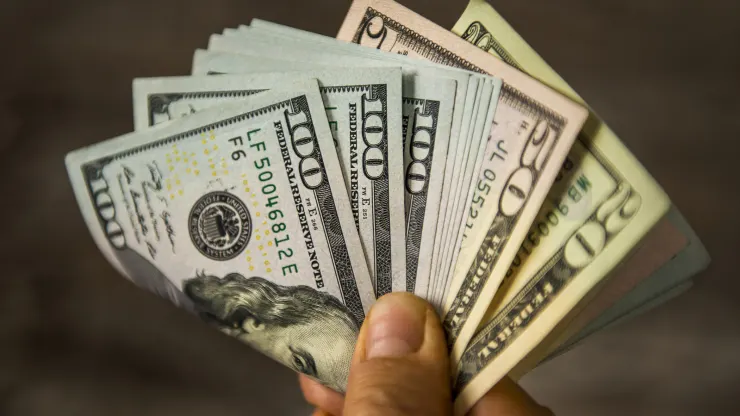The U.S. dollar held firm on Monday following last week’s bruising dive as Federal Reserve Governor Christopher Waller said that the central bank was not softening its fight against inflation.
A slightly cooler-than-anticipated inflation data on Thursday sent the greenback on a tailspin, with the dollar index
sliding 3.6% over two sessions last week, its biggest two-day percentage loss since March 2009.
Global equities soared as investors poured into risky assets on hopes that peaking inflation means less aggressive rate hikes from the Fed.
But Fed’s Waller on Sunday said that the inflation print last week was “just one data point” that would have to be followed with other similar readings to show convincingly that inflation is slowing.
Waller, however, did add that the Fed could now start thinking about hiking at a slower pace.
“I think the market got a little bit ahead of itself,” said Carol Kong, a currency strategist at Commonwealth Bank of Australia, adding the market will likely get a reality check from Fed officials, helping the dollar to recoup some of its recent losses.
U.S. inflation will likely remain high and keep the Fed on its monetary tightening path, Kong said.
U.S. consumer sentiment fell in November, pulled down by persistent worries about inflation and higher borrowing costs, a survey showed on Friday.
The U.S two-year yield, which reflects rate move expectations, edged up to 4.41%, after diving as deep as 4.29% on Friday.
Meanwhile, cryptocurrencies remained under pressure from ongoing turmoil in the crypto world after the fall of crypto exchange FTX. FTX’s native token, FTT, was last down 4% at $1.36, taking its month-to-date losses to nearly 95%.
Bitcoin fell about 1% at $16,170.
The Japanese yen weakened 0.24% versus the greenback to 139.12 per dollar, having strengthened 5.4% last week against the dollar. The euro was last down 0.2% at $1.0331.
Sterling was last trading at $1.1798, down 0.31% on the day ahead of British Chancellor’s Autumn Statement on Thursday where he is expected to set out tax rises and spending cuts.
The dollar index fell 0.094% at 106.610, not far off Friday’s low of 106.27.
The offshore Chinese yuan fell 0.23% versus the greenback to stand at $7.0723 per dollar on the day. The yuan had jumped on Friday after Chinese health authorities eased some of the country’s heavy Covid-19 curbs.
On Sunday, Reuters reported that Chinese regulators have told financial institutions to extend more support to property developers to shore up the country’s struggling real estate sector.

